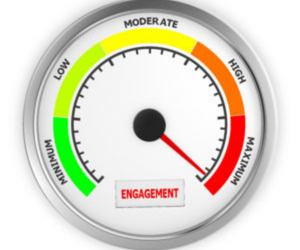Health of American Women: It’s Problematic
THINGS ARE NOT WHAT YOU EXPECT IN U.S. HEALTHCARE
There’s a widespread perception that the United States has the best health care in the world. After all, we spend more on health care per person, we have cutting-edge technology, excellent researchers, and really sophisticated health centers. Yet our life expectancy is shorter, and our disease rates are higher than the rest of the industrialized world. This is seen across all sectors and all age groups up to age 75. In addition, we see patterns for women that are particularly worrying. In the 1980s, when it comes to life expectancy, U.S. women were somewhat in the normal range compared to the rest of the industrialized world. Today, women in the U.S. are at the bottom. We spend $2.8 trillion per year on health care, yet 42% of women are dying at higher rates than they were a generation ago.
MULTIPLE FACTORS CONTRIBUTE TO THE DECLINE IN U.S. HEALTH OUTCOMES
I chaired a panel of the National Research Council and the Institute of Medicine that was charged with looking for an explanation for this decline in health outcomes. We did a deep dive and looked at such factors as: the health care system; health behaviors; socioeconomic conditions; the physical and social environment, such as the built environment and the way cities are organized; and public policies and social values. In each of these domains we found that the U.S. lagged in comparison to other industrialized countries. The bottom line is that unless we take bold transformative action, U.S. health outcomes are likely to deteriorate further.
THE HEALTHCARE PROVIDER CAN HELP AT THE NATIONAL LEVEL
The decline in life expectancy in the U.S. is a huge public health concern. Especially as it concerns women, and yet it’s hard to get research funding to study the causes. We spend research funds on such things as nanotechnology and gene mapping, but we’re not dealing adequately with social factors that have a much greater impact on our population. When it comes to women’s health, we’re dealing with a problem that threatens half the population and that will shape the health trajectory for the next generation because the health threats to women also extend to their children. We need more research to figure out what is going on. Health care providers can have an impact nationally by working with their professional groups. Professional groups can have a large impact on public policy.
HEALTHCARE PROVIDER CAN HELP AT THE COMMUNITY LEVEL
Health care providers can have a major impact on local policy. When a healthcare provider speaks up when the community is deciding about more physical activity in the schools, or healthier food in the cafeteria, or where a bus depot will be located, the community listens. When policy issues that affect health are being decided, they should attend community meetings or accept invitations from local radio, television, or newspapers for a chance to be interviewed on the subject.
HEALTHCARE PROVIDERS CAN HELP AT THE INDIVIDUAL LEVEL
Healthcare providers can help their patients by looking beyond the walls of the clinic. They can take into account the environment in which their patients live, for example. Let’s say a mother comes to a pediatrician with an obese child. The pediatrician could say, “Johnny needs to exercise more, so make sure he goes out and plays for 30 minutes a day.” A pediatrician who doesn’t realize that Johnny lives in a high crime area will also not know that the mother would be crazy to let him play outside.
Imagine a scenario in which the electronic medical record alerts the pediatrician to the neighborhood conditions for this patient and identifies a community resource center that offers indoor after-school exercise options. The pediatrician’s advice would be more meaningful: “I know you’re not comfortable with Johnny playing outside. But there’s a community center at the corner of 7th and Vine, where he can exercise indoors. I’ll print this information out for you.”
Search Articles
Latest Articles
Ukraine’s Fate and the U.S. Election: A Perspective from the Front Lines
https://foreignpress.org/journalism-resources/ukraines-fate-and-the-us-election-a-perspective-from-the-front-lines Publication –foreignpress.org
New Life for Old Ambulances
https://foreignpress.org/journalism-resources/new-life-for-old-ambulances Publication –foreignpress.org
Prince Mario-Max Schaumburg-Lippe: Orphans International and James Jay Dudley Luce Foundation Celebrate 25 Years of Global Leadership
https://t2conline.com/prince-mario-max-schaumburg-lippe-orphans-international-and-james-jay-dudley-luce-foundation-celebrate-25-years-of-global-leadership Publication –t2conline.com
Mitzi Perdue: I Am An Assassination Attempt Survivor
Mitzi Perdue: I Am An Assassination Attempt Survivor About The PodcastThe newsmaker interviews and the news you need when time is short!
Subscribe to Updates
About Author

Mitzi Perdue is the widow of the poultry magnate, Frank Perdue. She’s the author of How To Make Your Family Business Last and 52 Tips to Combat Human Trafficking. Contact her at www.MitziPerdue.com
All Articles
One Good Idea Can Change Your Life
One Good Idea Can Change Your LifeA brief story about Ernest Henderson Do what it takes to find good ideas. The reason? One good idea can change your life. And lots of good ideas can lead to undreamed of success! Let me explain why I say this by sharing a brief story...
Be the Person Others Want to Do Business With: Be fair
Be the Person Others Want to Do Business With: Be fairThe Beginnings of the Sheraton Hotel The international Sheraton Hotel Chain grew from an investment of just $1000. My father, his brother, and his college roommate received war bonuses after their military service...
Heart Disease In Women: It’s Different
Heart Disease In Women: It’s DifferentHEART DISEASE IS A WOMAN’S DISEASE In the 1950s, we all thought heart disease was a man’s disease. However, more women are dying of heart disease than men. Also, even though the mortality rates for both men and women are...
Prevent Nightmare House of Horrors: Family Business Quarrel, Part 2
Prevent Nightmare House of Horrors: Family Business Quarrel, Part 2 To prevent a Family Business Quarrel 1. Create a culture emphasizing that family members are part of something bigger than themselves. Being too self-centered is a danger in a family business....
Preventing Nightmare House of Horrors, a Family Quarrel, Part 1
Preventing Nightmare House of Horrors, a Family Quarrel, Part 1Since you’re here reading this, the subject probably hits close to home. If so, you have my entire sympathy. If ever there’s a high stakes situation, it’s the family quarrel in a family business. I’ve had...
Four Things Frank Perdue Did to Encourage Employee Engagement
Four Things Frank Perdue Did to Encourage Employee Engagement Employee engagement is one of the most important – possibly the most important factor in an organization’s success. When I look at how Frank Perdue (my late husband) built his chicken company from a...




